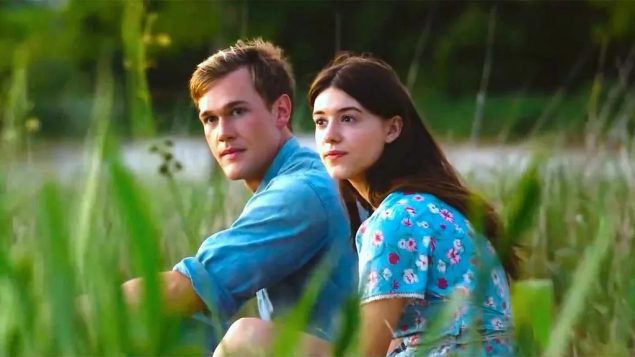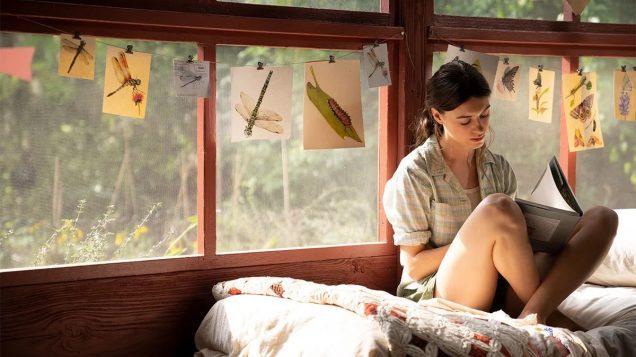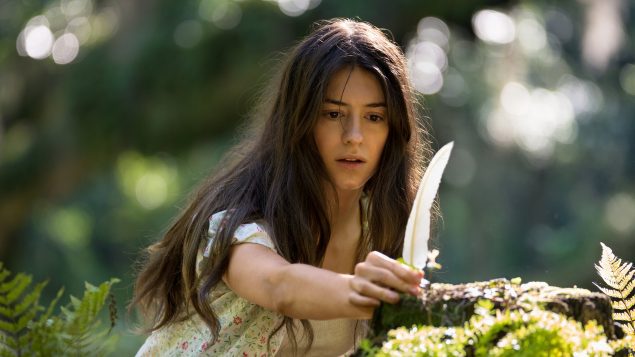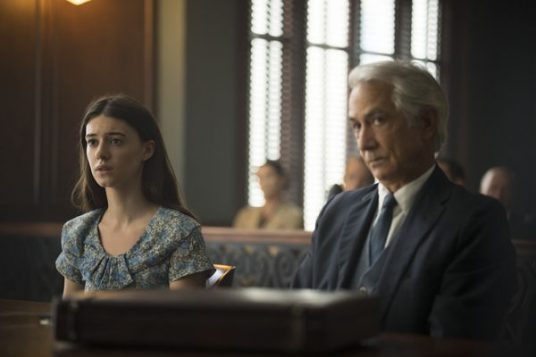Movie Review: Best-selling novel ‘Where the Crawdads Sing’ heads to the big screen
Reviewed by Jeffrey Sanzel
Released in 2018, Delia Owens’ Where the Crawdad Sings became one of the best-selling books of all time, with over twelve million copies sold. The story of Kya, a North Carolina marsh girl, was selected for Reese Witherspoon’s Hello Sunshine Book Club and Barnes & Noble’s Best Books of 2018. In 2019, it was number one on Amazon.com’s Most Sold Books in fiction, as well as The New York Times Fiction Best Sellers of 2019 and 2020. By February 2022, the novel had achieved 150 weeks on the best seller list. Witherspoon’s production company acquired the rights and has produced the film version.
The book alternates between two timelines. The first, beginning in 1952, traces Kya’s life as it deteriorates, leaving her alone to fend for herself. The second begins in 1965, with the teenage Kya’s involvement with Chase Andrews, Barkley Cove’s former star quarterback. The relationship builds to Chase’s mysterious death in 1969, for which Kya is arrested and tried.
Lucy Alibar (who co-wrote Beasts of the Southern Wild with Benh Zeitlin) has masterfully fashioned a screenplay that honors Owens’ book but somehow transforms the narrative through judicious editing and small touches connecting past and present. Under Olivia Newman’s seamless direction, the film manages the timeline effortlessly. Cinematographer Polly Morgan has richly shot the film, celebrating the natural world but also giving a dark edge to the town scenes. This triumvirate knows how to call attention to even the subtlest details, weaving the two threads and moving the action perpetually forward.
The film closely follows the book’s dual arcs. Young Kya lives with her loving mother and siblings in a rustic cottage. A child of nature, Kya constantly explores, wondering at flora and fauna. However, her father is short-tempered and abusive. After a particularly brutal beating, her mother leaves, followed quickly by Kya’s older brother and sisters. Left with her often drunk father, Kya navigates his moods and mercurial nature. From him, she embraces the creed that you “can’t trust nobody.” But one day, he abandons the girl. Alone, Kya must learn to survive.
An African American couple running a small store adjacent to the marsh provides her with the only humanity she knows. Kya grows up an outcast but a survivor. (Her one-day foray to school is particularly painful and poignant.) The only other kindness she receives is from a boy, Tate, who one day guides her home when she is lost.
The young adult Kya becomes involved with Tate, who loves her but goes off to school, never explaining (until later) why he did not reach out to her. Following this, Kya embarks on an unsatisfying and tense relationship with Chase. Although romance and connection are absent, she is still devastated when she discovers Chase’s engagement.
While there is a good amount of plot, occasional sections sag from a lack of tension. A sense of foregone conclusion hovers over many of the events in Kya’s life. Fortunately, a strong cast holds the film together.
Daisy Edgar-Jones balances Kya’s acceptance of her outsider status with her desire for a “normal life.” Her fragility contrasts with her self-awareness and a sense of inner core. She brings believability to the transition from uneducated recluse to the gifted artist and published naturalist. (Jojo Regina ably plays the young Kya.)
Taylor John Smith is sweet and earnest as her true love, Tate. Harris Dickinson’s Chase is a bit too villainous at the outset, presenting no surprise when he turns out to be cruel and manipulative. Sterling Macer Jr. and Michael Hyatt are warm and knowing as the couple who see value in Kya, eschewing the slight caricature of the book’s characters. As Kya’s lawyer Tom Milton, David Strathairn effectively channels Atticus Finch right down the white suit; but his folksy charm balances a low-burn need to see justice. As Kya’s nightmare of a father, Garret Dillahunt brings humanity to the abusive patriarch.
While the courtroom scenes are almost pedestrian (and fairly predictable), they accomplish what they must do. It is in the more reflective moments where the film succeeds best. Kya learns that “being isolated is one thing; living in fear is another.” Facing her own struggles, she finally understands why her mother had to leave.
The final sequence is beautiful, honoring the novel’s conclusion but emotionally elevating it, rewarding the viewer with a powerful, honest catharsis. For fans of the book and novices of the story, Where the Crawdad Sings is an engaging, emotional, and effective film.
Rated PG-13, the film is now playing in local theaters.










